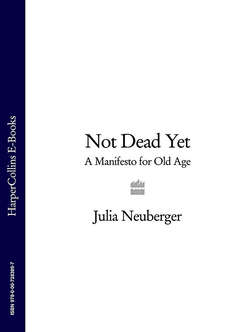Читать книгу Not Dead Yet: A Manifesto for Old Age - Julia Neuberger - Страница 14
9 Don’t treat my death as meaningless: the right to die well
ОглавлениеWe can hardly avoid the question about whether people can be allowed to reflect on meaning in life, and ultimately preparing for death. This is a curious section for the manifesto, but is essential: I have heard so much about how little space we allow for people to listen to older people making sense of their lives, telling their stories, recording life’s meaning, one way or another. If you are perceived as useless, beyond your sell-by date, a ‘wrinkly’ with nothing to contribute, you will not be able to give voice to how your life has been, to make sense of it, to think it through, reflect on lessons learned, and plan for what you still want to do and what will be left undone, and how to come to terms with a certain amount of equanimity with one’s impending death.
Some would call this space for spiritual awareness, and it is true that some people would find what they are looking for in this area in the churches and other faiths. But it goes further: we all need to make sense of our lives. We all need a sense of purpose, and indeed a sense of past and future.
Sydney Carter looked back at his life and ran though it, looking at himself at different ages and stages. For some of us, that is the way to do it. For others, it will be one particular aspect of life that will need emphasizing. Counsellors in hospices, and other staff in hospice and palliative care settings, often talk of how people try to put their affairs, and themselves, in order before they die. It cannot be beyond the wit of man and woman to invent or reinvent a space for this.
There are also questions about pain relief, and whether we recognize pain adequately – that pain is not always physical pain, but also spiritual, emotional and psychological pain. Dying people, most of whom are old, are enormously disadvantaged in our society, despite the relative popularity of hospices as a charitable cause. We have a tendency to shove dying people off to hospital rather than keeping them comfortable in their own space, and letting them die quietly at home. In the same way, why do we prefer invasive treatment – drips and forcible feeding – rather than gentle, hand-holding care?
